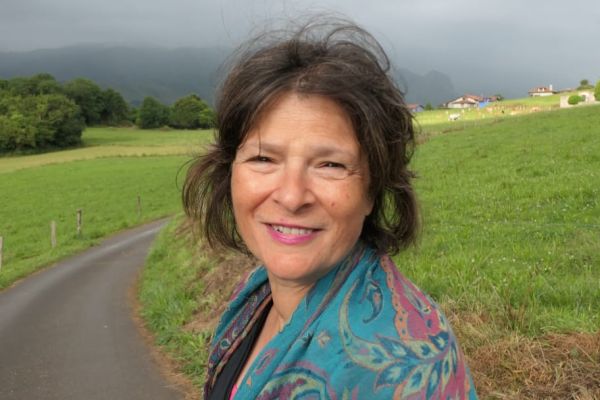I grew up in a family with three languages. So when I was training as a psychotherapist in the 1990s, I was surprised that there was no attention paid to multilingualism in my training. In 2021, there is still almost no input about the experience of speaking other languages than English in the training curricula of mental health practitioners. Why is it so difficult for the world of mental health, counselling and psychotherapy to take such a fundamental aspect of humanity – our languages – seriously?
The languages we use and the languages we lose are our human heritage. Languages are passed down or they are lost across the generations.
Bilingualism, linguistic identity and linguistic ideology have been and continue to be core considerations for Wales and for Welsh speakers. The 'Active offer of Welsh' is enshrined in the strategic framework for Welsh language services in health, social services and social care. A Welsh-speaking research participant talks about her experience of mental health support in this way: “ I wasn’t using Welsh every day. The skill had been brushed under the carpet … But having the opportunity to speak Welsh – wow … It was a turning point in the process of getting better.”1
So, how do we work effectively with multilingual clients, whether we are mono- or multilingual, and how do we work as multilingual therapists? People’s multilingual identities are a resource for improved mental health and wellbeing. They are not an obstacle. Mental health practices need to reflect that.
Using findings from our own research and consultation with patients and practitioners, and with funding from the Paul Hamlyn Foundation, we created a free online resource on multilingualism and mental health, which we launched with the Pásalo Project and the Open University in December 2020.
Course content:
The Pásalo Project: Multilingualism, mental health and psychological therapy
Course:
Open University: Multilingualism, mental health and psychological therapy
The resource is for trainee and qualified counsellors, psychotherapists, supervisors, psychological wellbeing practitioners, clinical psychologists, psychiatrists, mental health nurses, social workers, family therapists, interpreters and anyone else interested in multilingualism and mental health.
The resource covers topics such as linguistic justice, prejudice, privilege and power, multilingualism as an asset not a deficit, working with interpreters, emotional expression and trauma-processing across languages.
Health inequalities can only be improved by actively putting research findings and learning into practice. Training practitioners plays a pivotal role in changing practice. This relatively small intervention can contribute to the reduction of mental health inequalities for speakers of languages besides English who use counselling and mental health services.
We have trialled the training in England and in Wales. Colleagues in Wales have pointed out to us that the training could be adapted to make it more relevant for the Welsh language context.
We are therefore looking for participants to help us to adapt and modify the online resource on mental health and multilingualism for the specific linguistic setting of Wales. If you are interested and enthusiastic about this topic and you would like to find out more, please contact me at beverley@pasaloproject.org.
1 Welsh Centre for Language Planning for the Department for Health, Social Services and Children, Welsh Government and the Care Council for Wales.
Read more...

From social activism to social change
Beverley Costa introduces our new free Social Response Cycle resource

The bookshelf
Featuring 'The Brain has a Mind of its Own', J Holmes; 'Workplace Wellbeing', J Costello; 'Other Tongues', B Costa; 'Reflective Practice and Personal Development in Counselling and Psychotherapy', Bager-Charleson; 'Body Psychotherapy for the 21st Century', N Totton; 'The Polyvagal Theory in Therapy' by D Dana. Therapy Today, February 2021

Blogs and vlogs 2021
News, views and updates from our staff, members and counselling clients
Views expressed in this article are the views of the writer and not necessarily the views of BACP. Publication does not imply endorsement of the writer’s views. Reasonable care has been taken to avoid errors but no liability will be accepted for any errors that may occur.
